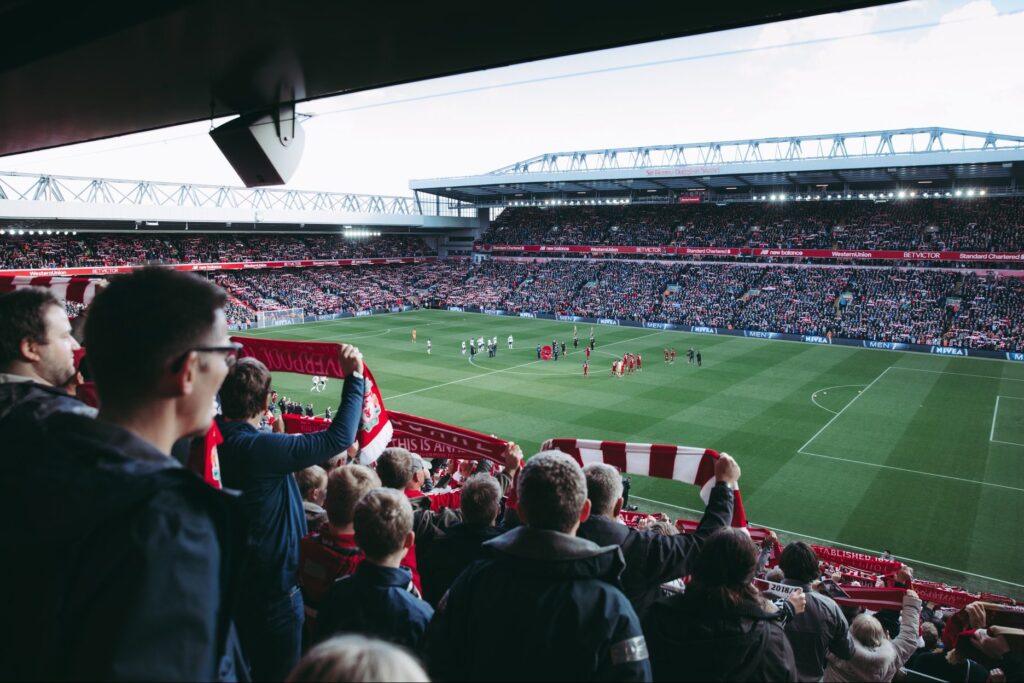© The Fan Experience Company 2020

Independence Tray

Darren Young
@fanexperienceco
Darren has been a part of The Fan Experience Company since 2017.
He has a background in working on customer service excellence projects in the UK and Europe, and an MBA that included studying in the USA .
A UEFA Mentor and Fan Experience Company consultant, Darren works with clubs across Europe to improve the match-day experience and increase attendance through engagement with fans.
The recommendation by former Sport’s Minister, Tracey Crouch, that football needs an independent regulator (from now on called an IREF) to ‘stop it lurching from one crisis to another’ is both very welcome and also incredibly frustrating.
Welcome, because we’ve seen to many clubs go to the wall or too close to it for comfort in the last few seasons. The unsustainable chasing of a dream that’s available to so few, and unattainable for so many – namely, a place at English football’s top table – creates a cascade effect as increasing wage bills and high-risk spending seeps down the football pyramid. No one wants to miss out on the riches at the very top of the game and clubs think, understandably if not altogether rationally, that if that money isn’t going to find its way down to them, then they’ll have to somehow climb the ladder to reach it instead.
For a few, it works. Aston Villa, to name one, reached the promised land and had their higher-than-most-Championship-spending-spree covered by the £160m or so that comes with promotion to, or back to in Villa’s case, the Premier League. For many more, it doesn’t turn out that way. It’s no secret either that a few clubs have gone for broke and are now reaping what they sowed with points deductions and /or financial meltdown. It’s also no coincidence that only one EFL Championship club – Luton Town – have signed up to Fair Game; a body that’s committed to a sustainable future for clubs at all levels. The dream – at that level – is so close, even if it’s still so far away.
Whilst salary caps stop clubs in League’s One and Two from spending at the same levels, and thus chancing their arm, they are not immune from getting into trouble. By striving to reach the Championship and stay there (the majority of the incoming money stays in the EFL’s highest division) they can leave themselves exposed or vulnerable too.
It’s not just risky business that befalls them though. Tracey Crouch has also suggested that the ownership tests for clubs be improved to protect their heritage and stop them from doing anything stupid that might threaten their existence. Whether someone buys a club because they dream of one day reaching the Premier League, or because they spot a way to make a fast buck without getting that far, the club needs to be protected from anything that prioritises individual greed over the club’s and fan’s long-term interests. Whatever happens, what has taken place at Bury, Bolton, Macclesfield and Wigan – to name a few – must not continue to happen.
It’s frustrating as well, but only because the recommendations in the review that relate directly to fans – input on the club’s board and a golden share – shouldn’t need a government intervention and external pressure to be implemented or even simply seen as a good idea.
When stadiums were empty, income was badly hit and the ESL was threatening to suck the sole out of the deeper English football pyramid, there was a lot of noise about how fans were now ‘more important than ever’ and that a new focus on them was the clear and obvious way forward. Yet, when stadiums opened fully in August, you’d have struggled to know anything had changed at all, save for a few mask-wearing staff at a minority of clubs and an extra poster about hand-washing in the toilets.
Arguably, clubs should have done this years ago. While the recent doomed European Super League attempt opened some serious wounds, it also started the ball rolling in this regard with Chelsea, Arsenal and Spurs – who were all burned by their part in the venture – immediately announcing plans to giving a fan, or fans, a much louder voice within the club. Other, smaller, clubs have followed suit, including my team, Walsall, with fan representation on the board. It’s not before time, but why has it not happened much sooner? If it had, some of the depressing events at the aforementioned clubs who’ve gotten into financial difficultly might well have been avoided.
But we are where we are. Time, and the impact of this review, will tell if this is something that has real legs. We’ve seen already this season that football has a tendency to revert to type very quickly after such a crisis. When stadiums were empty, income was badly hit and the ESL was threatening to suck the sole out of the deeper English football pyramid, there was a lot of noise about how fans were now ‘more important than ever’ and that a new focus on them was the clear and obvious way forward.
Yet, when stadiums opened fully in August, you’d have struggled to know anything had changed at all, save for a few mask-wearing staff at a minority of clubs and an extra poster about hand-washing in the toilets. Yes, most clubs had a Covid charter but they were buried deep in websites and barely read by anyone. That’s not criticising the clubs or the fans for that; merely highlighting that the rush to normality on both sides saw it banished to nothing more than an afterthought.
So, will the review have longer-term success at provoking real, long-term change? It’s hard to tell. There will still be some in the game that will want it swept under a carpet or at least kicked into the long grass for the foreseeable future, in the hope it’s eventually forgotten and we can all just carry on as we were.
But hopefully not everyone. It was said during the height of the pandemic that if football cannot change now, then it never will. It’s the same now. If there is no appetite for change at this point, when the inadequacies and unfairness of the current agreements and structures have been laid bare, then there will never be an appetite.
If the game has to be dragged kicking and screaming into the future by this IREF then, even if it has to abide by some of the decisions, it will be done under duress. And that will mean that corners will be cut, work under-budgeted and outputs not taken seriously enough.
If there is one thing worse than a club having no fan representation, it’s a club pretending that they have.
But done properly, putting fans first doesn’t mean having to give up on dreams. Realism and sustainability don’t automatically equate to mid-table mediocrity. Exeter City are showing how a fan-owned club need not be dis-advantaged because they don’t have a wealthy benefactor who’s prepared to put the club into debt to further ‘their’ ambitions.
It’s just that – too often – the kind of funds that could be invested in the fans, their experience and, ultimately (because this is how clubs attract the next generation), the club’s future, goes instead on another squad player who barely gets on the pitch and is often released – and quickly forgotten – at the end of the season.
Until clubs alter that level of thinking, no independent review is ever going to help them.
Want to read more by The Fan Experience Company?
See our White Paper about the balance between safety and the match day experience?
The paper ‘It’s Just Like Watching Pret’ can be viewed by clicking here

